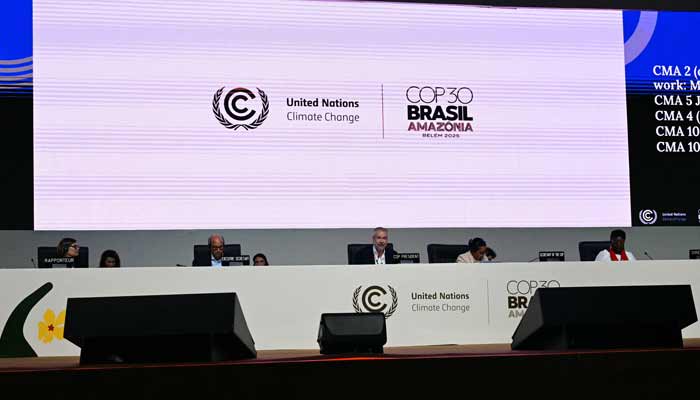Politics
World secures compromise deal at COP30 that sidesteps fossil fuels

- EU says it supports agreement because it’s going in right direction.
- Efforts insufficient for keeping temperatures at1.5C: scientist.
- Climate bodies to review alignment of trade with climate action.
World governments agreed on Saturday to a compromise climate deal at the COP30 conference in Brazil that would boost finance for poor nations coping with global warming but omit any mention of the fossil fuels driving it.
In securing the accord, countries attempted to demonstrate global unity in addressing climate change impacts even after the world’s biggest historic emitter, the United States, declined to send an official delegation.
But the agreement, which landed in overtime after two weeks of contentious negotiations in the Amazon city of Belem, also exposed rifts between wealthy and developing nations, as well as between those governments with opposing views on oil, gas and coal. After gaveling the deal through, COP30 President Andre Correa do Lago acknowledged the talks had been tough.
“We know some of you had greater ambitions for some of the issues at hand,” he said.
The European Union had been the main holdout for language on a transition away from fossil fuels, but ultimately agreed to drop it after a coalition of countries including top oil exporter Saudi Arabia said it was off-limits.
“We should support (the deal) because at least it is going in the right direction,” the European Union’s climate commissioner, Wopke Hoekstra, told reporters before the deal was gaveled through.
Some countries had harsher words.
“A climate decision that cannot even say fossil fuels is not neutrality, it is complicity. And what is happening here transcends incompetence,” said Panama’s climate negotiator Juan Carlos Monterrey.
Finance boost
The deal launches a voluntary initiative to speed up climate action to help nations meet their existing pledges to reduce emissions, and calls for rich nations to at least triple the amount of money they provide to help developing countries adapt to a warming world by 2035.
Scientists have said existing national commitments to cut emissions have cut projected warming significantly, but are not enough to keep world temperatures from breaching 1.5C above industrial levels, a threshold that could unleash the worst impacts of climate change.
Developing countries have argued in the meantime that they urgently need funds to adapt to impacts that are already hitting, like rising sea levels and worsening heat waves, droughts, floods, and storms.
Avinash Persaud, Special Advisor to the President of the Inter-American Development Bank, a multilateral lender focused on Latin America and the Caribbean, said the accord’s focus on finance was important as climate impacts mount.
“But I fear the world still fell short on more rapid-release grants for developing countries responding to loss and damage. That goal is as urgent as it is hard,” he said.
Fossil fuel side text
The impasse between the European Union and the Arab Group of nations over fossil fuels had pushed the talks past a Friday deadline, triggering all-night negotiations before a compromise could be reached.
Correa do Lago said on Saturday morning that the presidency was issuing a side text on fossil fuels — as well as on protecting forests — keeping it out of the main accord because of the lack of consensus.
But he urged countries to keep discussing the issues.
“I know that most of you are tired, but as president of this conference, it is my duty to recognize some very important discussions that took place in Belem and that needs to continue during the Brazilian presidency, until the next COP, even if they are not reflected in this text we just approved,” he said.
Saturday’s agreement also launches a process for climate bodies to review how to align international trade with climate action, according to the deal text, amid concerns that rising trade barriers are limiting the adoption of clean technology.